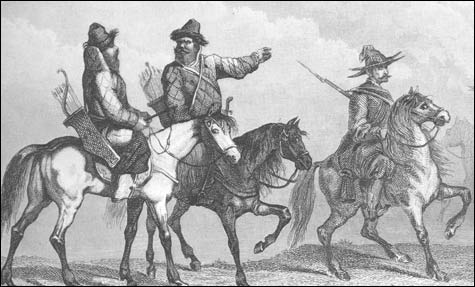 |
Now that the jungle is withdrawing, and the wilderness is tenanted, and every inch of Earth’s surface is invisibly cross-hatched by centuries of cartography, the brief of the travel writer has altered somewhat. In the old days — in the 13th century, for example, when the great adventurer/bullshitter Marco Polo was in his prime — it was enough for a man to sail away for a year or two, come back, and then simply report on what he had seen. Or not seen, in Polo’s case. “Andaman is a very big island. . . . You may take it for a fact that the men of this island have heads like dogs, and teeth and eyes like dogs; for I assure you that the whole aspect of their faces is that of big mastiffs.” Polo was doing time in an Italian prison when he dictated Travels, which may account for its pervasive fantastic quality. Somewhere deep down he was an honest man: every one of his whoppers is preceded by a giveaway protestation of veracity, a “You must know” or an “I tell you in all truthfulness.” (One may imagine the diligent Rustichello da Pisa, Polo’s jailhouse amanuensis, rolling his eyes as he took down the details.)Penguin’s “Great Journeys” series, published this month, excerpts the great texts of travel literature, from Herodotus to Ernest Shackleton, in 10 slender and beautifully designed paperback volumes. (The passages from Polo’s Travels are collected under the title The Customs of the Kingdoms of India.) The closest to us degenerate moderns in terms of sensibility is undoubtedly Mark Twain, an extract of whose The Innocents Abroad, originally published in 1869, appears as Can-cans, Cats &Cities of Ash. Twain cruises the Mediterranean with some fellow Americans, making noisome and heretical pit stops in the Azores, Morocco (“The Emperor . . . is a soulless despot.”), Italy, and Greece, but it is the well-groomed nation of France that really rouses his native anarchy:
Occasionally, merely for the pleasure of being cruel, we put unoffending Frenchmen on the rack with questions framed in the incomprehensible jargon of their native language, and while they writhed, we impaled them, we peppered them, we scarified them, with their own vile verbs and participles.
As a comedian Twain was pitch-perfect:
We went to see the Cathedral of Notre Dame. — We had heard of it before. It surprises me, sometimes, to think how much we do know, and how intelligent we are. We recognized the brown old Gothic pile in a moment: it was like the pictures.
The current satirists of cretin America, of whom George Saunders is the chief, were but twinkles in Twain’s eye. The only thing that dates Can-cans, Cats & Cities of Ash as literature is its extraordinary latitude of style, as the author swings irrepressibly from sarcasm to rhapsody: